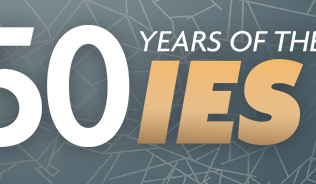CHES and the IES have published a joint response to the Department for Education’s (DfE) Sustainability & Climate Change Draft Strategy. The Draft Strategy, published towards the end of 2021, intends to set out short, medium, and long-term actions to support the DfE’s sustainability and strategic response to climate change.
The draft strategy is currently subject to an engagement process, including a feedback survey, and is due to be finalised in April 2022. CHES and the IES have taken the opportunity of the engagement process to unite the voice of environmental science education with a response to the draft strategy.
What is the Department for Education’s Draft Strategy?
The Department for Education set out its Sustainability & Climate Change Draft Strategy in November 2021, outlining the strategic steps it will take between now and 2030 to achieve four objectives:
- Excellence in education and skills for a changing world
- Net zero
- Resilient to climate change
- A better environment for future generations
Announced during the UN’s COP26 Climate Summit, the Draft Strategy says that it is guided by principles of ‘partnership and collaboration, evidence and insight, and leadership and support’. Just a week later, the IES published its Manifesto for Transformative Change, based on many of the same principles. However, the IES’s call for transformative change sets out a scale of action beyond that which has been proposed in the Draft Strategy.
How have CHES and the IES responded?
While broadly supporting the important increase in ambition that the Draft Strategy represents, CHES and the IES argue that “The Draft Strategy does not yet go far enough to secure … a ‘whole system’ approach to the role of education in the transition. On key issues such as carbon literacy and delivering transformative change at pace, the Draft Strategy currently does not propose the scale of action required.”
The response sets out analysis on the current state of the Draft Strategy, as well as 20 recommendations to “extend the final Strategy to appropriately balance the resources, capacity, and restrictions of the Department with its ambition to ensure sustainable development and to meet the urgent challenge of the climate crisis.” The response focuses on five key areas:
- Aspirations and values
- Evidence and data
- Implementation
- Skills across the workforce
- Embedding climate citizenship
While the Draft Strategy still requires significant improvement to ensure that the education system can address sustainable development and the climate crisis, the Department for Education has taken significant steps towards the proper recognition of the role of science and evidence.
The response of CHES and the IES states that “the de-politicisation of climate science will be vital to ensuring the spread of carbon literacy to the population-at-large. CHES and the IES commend the Strategy’s vital statement that ‘teaching about climate change and the scientific facts and evidence behind this, does not constitute teaching about a political issue and schools do not need to present misinformation or unsubstantiated claims to provide balance’.”
However, even where there are positive commitments in the Draft Strategy, they will depend heavily on the Department delivering on its ambitions and securing the resources necessary to make them a reality. “The Draft Strategy demonstrates a commitment to positive action on many of the issues necessary to transform the education system … though implementation remains a key area of concern, especially where plans to achieve outcomes in the Draft Strategy are vague or intangible.”
This mirrors the wider response from the sector to the DfE’s Draft Strategy, which has been mixed between positive recognition of the rise in ambition and concerns that more still needs to be done to achieve necessary change. Teach the Future’s response is that there has been “substantive progress on climate education and reducing the carbon footprint of education” but that it “falls short of what is needed”.
What next?
The Department for Education is currently undertaking a process with relevant stakeholder groups to finalise the Strategy, with a final version due for a release in April 2022. The Department is also running a feedback survey for public consultation. CHES and the IES are encouraging members with relevant insights to share their views.
Meanwhile, CHES and the IES will be working to promote the voice of environment science and environment education, using the joint response to help influence decision makers.
You can read the full response from CHES and the IES here.



